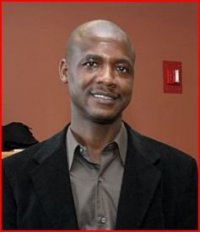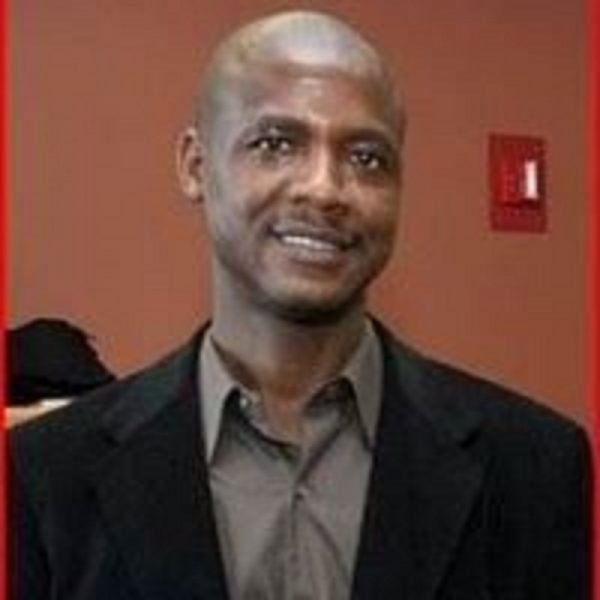
I’ve stated on numerous occasions in some of my publications and through social media how disappointed I am with my former profession.
The media, the free press, given constitutional protection by the founders and pioneers of this nation to be the watchdog over the “grand experiment” that was and is Gambian longest tradition, is failing in its responsibility and, in my opinion, sacred trust and duty to inform the citizenry of the actions of its government.
The Gambia press is negligent and derelict in its duty. Shortly after founding the Missouri School of Journalism in 1908, Walter Williams wrote a code of ethics known as The Journalist’s Creed. I would be surprised if even a small majority of Gambian journalists have ever heard of it let alone read it or strive to work by it in their daily profession, though it available online for all to see.
How many walks by it daily without a second thought?
The Journalist’s Creed:
“I believe in the profession of Journalism.
I believe that the public journal is a public trust; that all connected with it are, to the full measure of responsibility, trustees for the public; that all acceptance of lesser service than the public service is a betrayal of this trust.
I believe that clear thinking, clear statement, accuracy and fairness are fundamental to good journalism.
I believe that a journalist should write only what he holds in his heart to be true.
I believe that suppression of the news, for any consideration other than the welfare of society, is indefensible.
I believe that no one should write as a journalist what he would not say as a gentleman; that bribery by one’s own pocket book is as much to be avoided as bribery by the pocketbook of another; that individual responsibility may not be escaped by pleading another’s instructions or another’s dividends.
I believe that advertising, news and editorial columns should alike serve the best interests of readers; that a single standard of helpful truth and cleanness should prevail for all; that supreme test of good journalism is the measure of its public service”.
I believe that the journalism which succeeds the best-and best deserves success-fears God and honors man; is stoutly independent; unmoved by pride of opinion or greed of power; constructive, tolerant but never careless, self-controlled, patient, always respectful of its readers but always unafraid, is quickly indignant at injustice; is unswayed by the appeal of the privilege or the clamor of the mob; seeks to give every man a chance, and as far as law, an honest wage and recognition of human brotherhood can make it so, an equal chance; is profoundly patriotic while sincerely promoting international good will and cementing world-comradeship, is a journalism of humanity, of and for today’s world.
It isn’t perfect, but neither is the profession occupied by imperfect human beings. That, however, does not excuse the blatant disregard for most of the tenets of this creed by our current broadcast media, print media, and news organizations.
I challenge all who call themselves journalists, at all professional levels to read the creed and then perform a sincere inventory of his or her journalistic practices.
This country needs a voice it can believe, verify, and trust. Who will be the journalists to accept that charge? Who will follow the creed and all other ethical codes of conduct?
Please step forward. Now






With the advent of social media in the environment of modern day freedom of speech (though with good aspects to both) many good practices/human behaviours seem to have taken a heavy punch/blow from this new phenomenon. The profession of Journalism whose practitioners should have own the tool have also become victims of the same tool.
This is possible because with no proper checks or regulatory mechanism and deliberately failing to pin the accompanying responsibility to whatever one chose to say, everyone speak about everything in every situation and in every manner without any form of research or knowledge on the subject. This has not only put some media practitioners or houses out of work or reduced income but it also created a platform for every utterance that can ignite conflict among people.
A simple safety precaution in life (not only in a workshop) is that do not start a machine until you know where the stop button is. This means knowing what responsibility any utterance attracts before uttering a word. The word ‘freedom’ should never be taught or be passed on to people without making them aware of the responsibility that goes with that freedom. In The Gambia and many African context, ‘freedom’ and ‘democracy’ have been so miss place that it is distracting the steering wheel of many nations from focusing on getting us to a safe destination (when we can provide our needs for ourselves by ourselves in our own terms. In which Western country will anyone go on-line and utter abusive languages directed to living or dead individual human beings? I believe the answer to this question in my little knowledge is non. That is not because people in the West do not have grievances against authorities or other people with different views or political opinions on things that affect them but it is because the West have created the infrastructure to be able to track any abuse of the communication infrastructure/system (freedom of speech) upon and within which the notion of freedom of speech is exercised backed by and connected with security surveillance systems of varied kinds and resources to support all thses systems to operate effectively. Is that the case for us? No, it is not? Far from that, in our situation, The Gambia, our communication infrastructure (ministry of info. & comm.) + security apparatus are struggling with the very basics of their job let alone to ensure proper/lawful use of the freedom of speech!!!
Yes, people have mouths purposely for communication but if opening that mouth will interrupt the cohesiveness /peaceful co-existence, then it should be acceptable to every well meaning person to get that mouth shut. Anyone speaking should speak peace or else, keep quiet, is a great saying by a great person, can we practice it?
Mr Jallow, I am not surprise by what seem or appear to surprise you(that you wonder if any Gambian journalist know about or ever read the’creed’, ? I would not want to generalise here but it can safely be said that (before its introduced as a course of study at the University and subsequent graduation of its first cohort), Journalism in the recent decade or more has been crammed with nearly 60 or more percent of new school leavers some of whom did not pass well enough to enter the University, Gambia College (schools of Teaching, Nursing, Agriculture, Livestock, etc), GTTI or Hotel School, etc.). How then do we expect that critical information that is unbiased, educative, entertaining and productive? A situation where no license is required, anyone can just go out there, write and get the unverified piece published not just on print media but also on the social media. Our leaders (in this case Ministry of Information, police and other stake holders) should come up with policy recommendations to the national assembly to institute a professional body who will issues license to anyone aspiring to write for public consumption. Such licenses should be issued only to applicant who fulfil the criteria/capacity (academic as well as criminal records). There should be high standards to acquiring certain professional licenses before we expect high performance and productivity any profession. Just as it is in teaching, police, nursing etc, even after graduating from high school or University, professional training (with core modules such as essentials of writing, ethics, penalties/punishable actions for failure(code of conduct), in all fields should be a must. If after this rigorous training/licensing processes, a person goes out to collect news for publication already aware that s/he stand to loose his/her license for ever or suspended for a long period and all media outlets having gone through similar process before opening a news outlet are made to sign agreements that they cannot employ a person without a clean license, then we can expect people to care about their actions and what information they put out for public consumption.
No quick or easy fix is going to give us a lasting solution to our current predicaments.
In a similar fashion, aspiring politicians should be made to pass some design tests/scrutiny before they can contest public positions that bear severe consequences on the population/country. A case in point here is the way and manner our current executive appears to be handling affair s of the nation (our lives)
I believe we have all seen or are seeing that mere removal of one leader does not fix our problems, in Libya, Iraq, Afghanistan etc. though the leaders of these nations have not been my icons, their removal resulted in retrogression despite the so call ‘freedoms’, ‘democracy’, international recognition, etc.
In my diary, Yaya Jammeh , for some reasons, may not be on the list of leaders of iconic standing. However, his removal with a candidate, whom very little is known of, is appearing to be another form of danger as its now presenting in different forms some real difficulties for the citizens and getting to include some of the issues that draw many behind the coalition (ie. loss of life and property-insecurity), a bi product of unverified forms of freedom. African countries do need strong leadership, leaders who can say no when it is necessary, leaders who can accommodate being called names by a few for their selfish interest but keep firm on their publicly explained and defend able decisions that is in the interest of the many and not the other way round, leaders who demonstrate the ability to say this is wrong even to their allies.